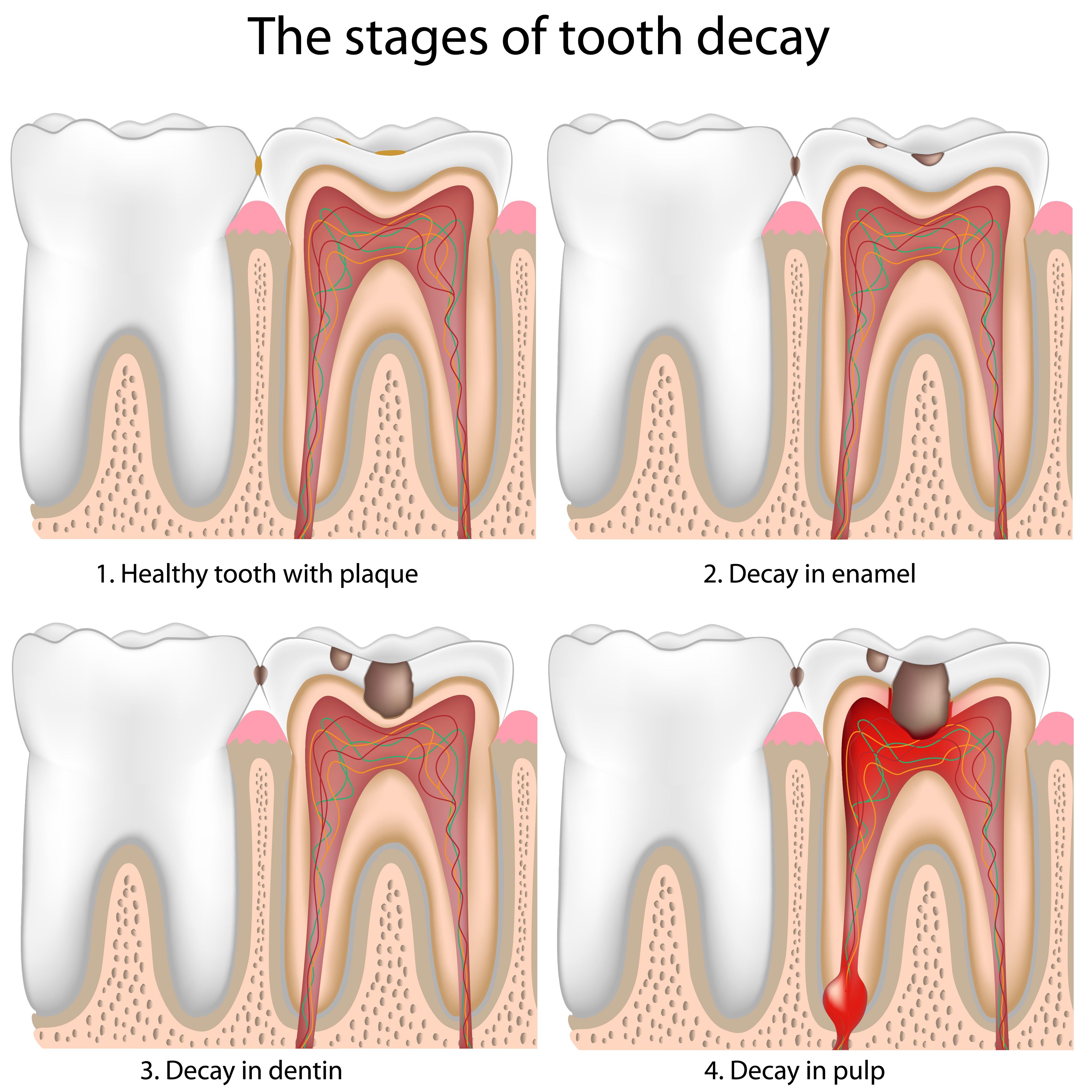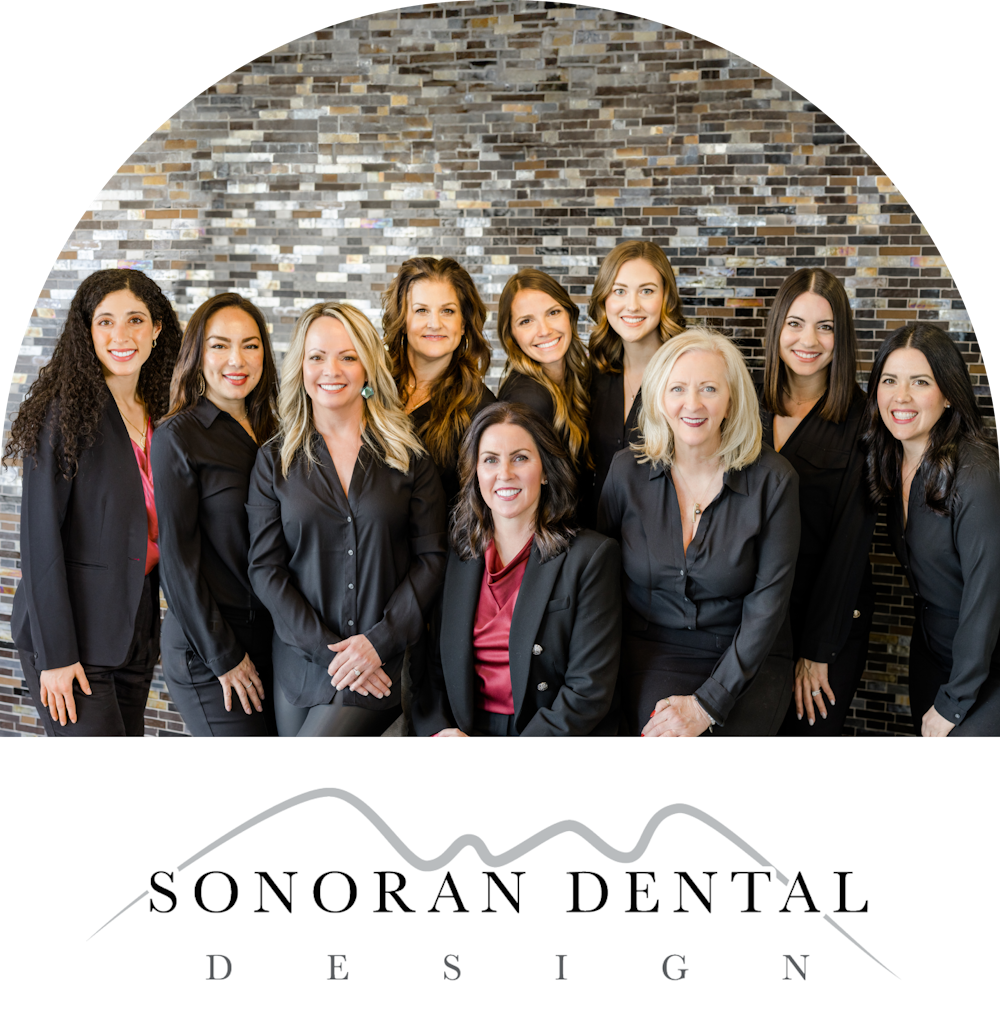The Stages of Tooth Decay Progression: Patient Info
 We treat common dental problems everyday at our Scottsdale restorative dentistry center. Sonoran Dental Design is able to treat small cavities, gum disease, and more advanced stages of tooth decay, with a focus on improving dental wellness and the overall aesthetics of the smile.
We treat common dental problems everyday at our Scottsdale restorative dentistry center. Sonoran Dental Design is able to treat small cavities, gum disease, and more advanced stages of tooth decay, with a focus on improving dental wellness and the overall aesthetics of the smile.
Many patients have misconceptions about the nature of tooth decay. Let's take a moment to go over the different stages of tooth decay and how it can be treated.
Stage One: The Initial Lesion
In the earliest stages of tooth decay, the first sign of a problem is the formation of a lesion on the surface of a tooth. This typically means brown or white discoloration of the tooth structure. While this will not show up as tooth decay in a dental x-ray, it's the first sign of demineralization of a tooth.
At this early stage of tooth decay, it's possible to reverse the damage that's in progress. Dentists can begin a program of cleanings, fluoride treatments, and the use of dental sealants if needed. In addition, patients can improve their oral hygiene practices and avoid foods and beverages that may make them more susceptible to tooth decay.
Stage Two: Enamel Decay
Enamel decay refers to the damage to the tooth enamel itself. This is the topmost layer of a tooth and one of the strongest substances in the human body. At this point, irreversible dimineralization has occurred and the damage will show up as a cavity in dental x-rays.
The most common treatment for enamel decay is the use of a dental restoration. A traditional filling will help rebuild the compromised tooth structure and strengthen a person's smile.
Stage Three: Dentin Decay
Beneath the tooth enamel is a porous substance known as dentin. When tooth decay breeches the enamel, it reaches this underlying layer of the tooth structure. Patients will often notice pain and tooth sensitivity at this stage of tooth decay.
To treat dentin decay, more advanced dental restorations are a common option. This generally means the use off inlays, onlays, or dental crowns, which will protect a tooth from further harm while restoring full function.
Stage Four: Infection of the Dental Pulp
Inside of every tooth is a hollow chamber filled with a substance known as dental pulp. This pulp is comprised of nerves, blood vessels, and connective tissue that was essential for the initial formation of the tooth. When the dental pulp becomes diseased, this is known as a root canal infection. It can be quite painful.
The ideal treatment for root canal infections is endodontic therapy. This process involves the removal of the disease dental pulp, the cleaning and filling of the pulp chamber, and the placement of a dental crown.
Stage Five: Formation of an Abscess
An abscess is an accumulation of pus that has built within the body. An oral abscess from untreated tooth decay can be quite painful, and can lead to major health problems if it bursts or goes untreated.
If an abscess forms, it's important to have it professionally drained. This will be followed by antibiotic treatment. Sometimes a tooth can still be saved at this advanced stage, though extraction of the severely decayed tooth may be the most ideal option.
Learn More About Treating Tooth Decay
For more information about treating and preventing tooth decay, be sure to contact our cosmetic and restorative dentistry center today. Our team looks forward to your visit and discussing these matters in much greater detail.









